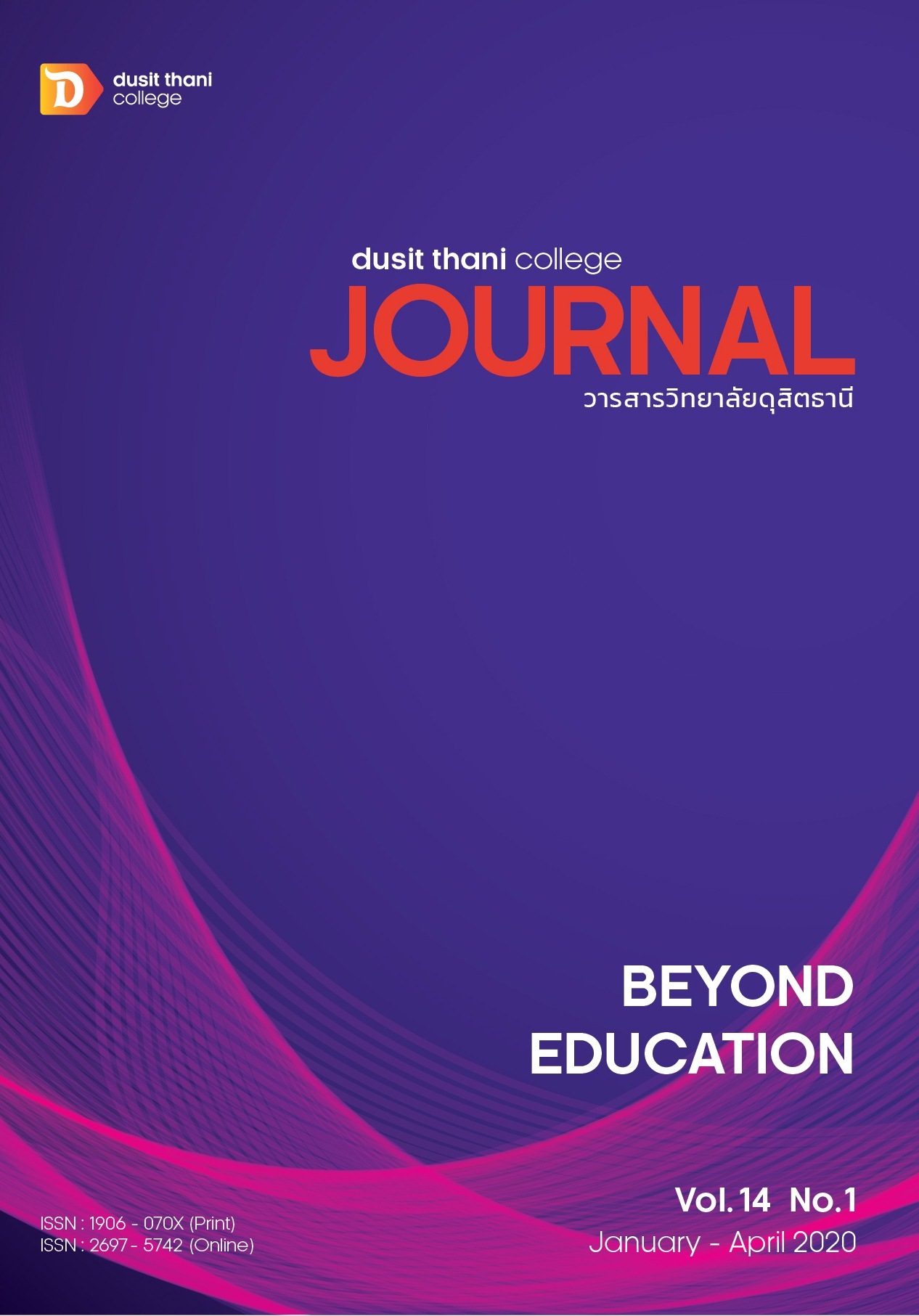การจัดการสาธารณะเชิงความร่วมมือโดยภาคีที่สาม
Main Article Content
บทคัดย่อ
การจัดการสาธารณะบนความร่วมมือระหว่างภาคีในสังคมเป็นที่รู้จักและมีมาช้านานแล้ว โดยเฉพาะในกิจการการกุศล ในสังคมสมัยใหม่หน่วยงานภาครัฐได้เข้ามามีบทบาทหลักในการจัดการสาธารณะและต่อมาจึงอาศัยความร่วมมือจากภาคธุรกิจเอกชนที่แสวงกำไร เมื่อสังคมมีความซับซ้อนขึ้นบทบาทสาธารณะเป็นสิ่งจำเป็นและหลีกเลี่ยงไม่ได้ที่จะต้องอาศัยความร่วมมือจากทั้งภาครัฐ เอกชนแสวงกำไร และภาคีที่สาม ซึ่งภาคีนี้เป็นจุดเน้นของบทความนี้ที่จะชี้ให้เห็นความเคลื่อนไหวในวงวิชาการทางด้านรัฐประศาสนศาสตร์ที่เปิดกว้างให้ความสนใจในกรอบความคิดของภาคีที่สาม กรอบแนวคิดที่มาขององค์กรภาคประชาสังคม ทฤษฎีประชาสังคม คุณลักษณะขององค์กรภาคประชาสังคม เป้าหมาย วิธีการ ลักษณะการทำงาน ความพยายามขององค์กรภาคประชาสังคม ความเคลื่อนไหวขององค์กรภาคประชาสังคมของไทย และระบบความสัมพันธ์ขององค์กรภาคประชาสังคมของไทยกับองค์กรทางสังคมอื่นในอนาคต
Article Details
นโยบายการพิจารณากลั่นกรองบทความ
- บทความวิจัยและบทความวิชาการทุกเรื่องที่จะได้รับการตีพิมพ์ต้องผ่านการพิจารณากลั่นกรองโดยผู้ทรงคุณวุฒิ (Peer Review) ในสาขาที่เกี่ยวข้อง จำนวน 3 ท่าน/บทความ
- บทความ ข้อความ ภาพประกอบและตารางประกอบที่ลงตีพิมพ์ในวารสารเป็นความคิดเห็นส่วนตัวของผู้เขียน กองบรรณาธิการไม่จำเป็นต้องเห็นด้วยเสมอไป และไม่มีส่วนรับผิดชอบใด ๆ ถือเป็นความรับผิดชอบของผู้เขียนแต่เพียงผู้เดียว
- บทความที่จะได้รับการตีพิมพ์จะต้องไม่เคยตีพิมพ์ เผยแพร่ที่ใดมาก่อน และไม่อยู่ระหว่างการพิจารณาของวารสารฉบับอื่น หากตรวจสอบพบว่ามีการตีพิมพ์ซ้ำซ้อน ถือเป็นความรับผิดชอบของผู้เขียนแต่เพียงผู้เดียว
- บทความใดที่ผู้อ่านเห็นว่าได้มีการลอกเลียนหรือแอบอ้างโดยปราศจากการอ้างอิง หรือทำให้เข้าใจผิดว่าเป็นผลงานของผู้เขียน กรุณาแจ้งให้กองบรรณาธิการวารสารทราบจะเป็นพระคุณยิ่ง
เอกสารอ้างอิง
2. Denhardt, Robert B. and Grubbs, Joseph W. (2003). Public Administration : An Action
Orientation. Belmont: Thomson.
3. Department of Disaster Prevention and Mitigation. (2014).
Glossary of Disaster Risk Management. Institute for Civil Service Advisory Institute. https://www.th.undp.org/content/dam/thailand/docs/UNDP_TH%20Glossary%20of%20Terms%20DRM%202014.pdf. (accessed on 30 August 2018).
4. Drake, Robert F. (2001). The Principles of Social Policy. New York: PALGRAVE.
Eikenberry, Angela M. and Kluver Jodie Drapal, The Marketization of the Nonprofit Sector:Civil Society at Risk? Public Administration Review • March/April 2004, 64(2) pp. 132 - 140)
5. Fuertes-Fuertes, Iluminada and Maset-Llaudes, Amparo. (2007). Exploring Spanish
Nongovernmental Organizations for Development: An Empirical Approach, Nonprofit and Voluntary Sector Quarterly, 36(4), 695 - 706 (2007)
6. Giddens, Anthony (ed). (2001). The Global Third Way Debate. Cambridge: Polity Press.
Korten, David C. CIVILIZING SOCIETIES. The Positive Futures Network & The People-Centered Development Forum , www.ratical.org/co-globalize/DKcivilizing.html. \
(accessed on 1 January 2018).
7. Kubik, Jan and Ekiert, Grzegorz. Civil Society From Abroad: the Role of Foreign Assistance in the Democratization of Poland, The Weatherhead Center for International Affairs Harvard University, Working Paper Series 00-01 February 2000,
www.ciaonet.org/wps/kuj01/ (accessed on 1 April 2018).
8. Laothammatas, Anake. (1999). Civil Society in the West: Reading and Teaching at John
Hopkins. The Institute for Learning and Civil Society Development.
9. Office of the Civil Service Commission. (2004). Guidelines for managing local cooperation. Bangkok: Nam Kang Printing.
10. Osborne, David and Gaebler, Ted. (1993). Reinventing Government How the Entrepreneurial Spirit Is Transforming the Public Sector. New York: Penguin Group.
11. Pollitt, Christopher and Bouckaert, Geert. (2000). Public Management Reform: A Comparative Analysis. New York: Oxford University Press Inc.
12. Rosenblum, Nancy L. and Post, Robert C. (eds) (2001). Civil Society and Government, Princeton University Press, press.princeton.edu/chapters/i7214.html (accessed on
21 March 2018).
13. Salamon, Lester M. and Anheier, Helmut K., Social Origins of Civil Society: Explaining the Nonprofit Sector Cross-Nationally, International Journal of Voluntary and Nonprofit Organizations, 9(3), 1998.
14. Siriprakorp, Prakorn. (2015). Three Paradigms of Public Administration: Theoretical Concept and Its Applications. Bangkok: Chulalongkorn University Press. .
15. Skelcher, C.,and V. Lowndes. (1996). Community networks in urban regeneration.Bristol: Policy Press.
16. Social Research Institute Chulalongkorn University. (2003). Non-Governmental Organization in Thailand. Thailand Research Fund.
17. Tam, Henry. (1998). Communitarianism: A New Agenda and Citizenship. London: Macmillan Press Ltd.
18. The Public Administration Association of Thailand. (2019). 9th Annual Conference: “Public Administration in Transition of Digital Age” 15 March 2019, The National Institute of Development Administration. https://drive.google.com/file/d/14XGweXEU6sS250Yby
JV0b9P91TGOP3IR/view (accessed on 1 April 2019).
19. The World Bank, “Issues and Options for Improving Engagement Between the World Bank and Civil Society Organizations” External Affairs, Communications and United Nations Affairs Environmentally and Socially Sustainable Development Network Operations Policy and Country Services Network , March 2005. http://www.worldbank.org/civilsociety. (accessed on 20 April 2018).
20. Walker, Steven V. and Marr, Jeffrey W. (2001). Stakeholder Power: A Winning Strategy for Building Stakeholder Commitment and Driving Corporate Growth. Massachusetts: Perseus Publishing.


